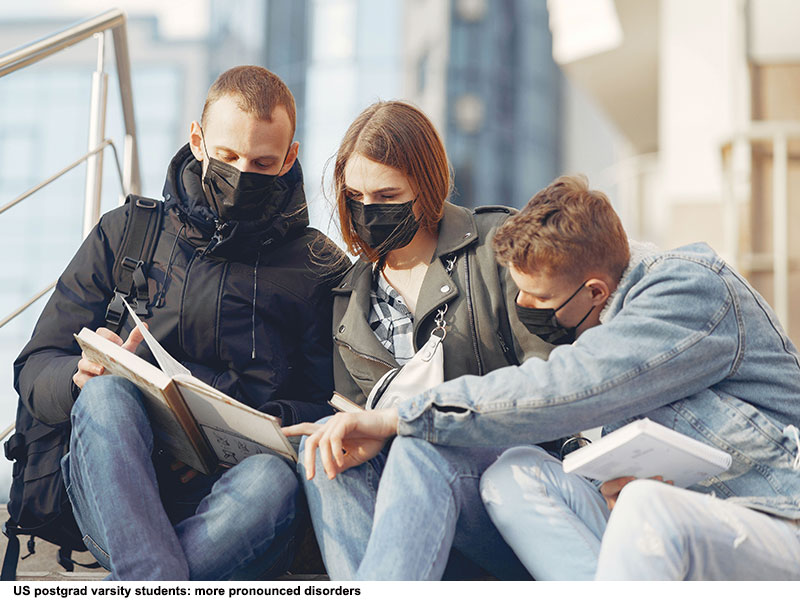
The share of US postgraduate students suffering depression has more than doubled during the coronavirus pandemic, according to a major survey of students at nine public research universities. A survey of 30,725 undergraduates and 15,346 postgraduates by the Student Experience in the Research University (SERU) Consortium, based at the University of California, Berkeley, found 35 percent of undergrads and 32 percent postgraduates screened positive for major depressive order, while 39 percent of both cohorts screened positive for generalised anxiety disorder.
Both disorder rates are more pronounced among low-income students, students of colour, women and non-binary, LGBTQ students and students who are caregivers, according to the study, which was conducted between May-July 2020. The rates are also higher among students who adapted poorly to remote instruction.
When comparing the results with an equivalent survey carried out by the SERU Consortium in spring 2019, the data reveals that the share of postgraduates suffering mental health disorders has increased as a result of the pandemic. The prevalence of depression among postgraduate and professional students is two times higher in 2020 compared with 2019, while the prevalence of anxiety is one and a half times higher this year.
The research also found that students in arts, humanities, communication and design fields are particularly vulnerable to mental health problems. Almost two-thirds (63 per cent) of postgrads studying English language and literature tested positive for anxiety, while 51 percent tested positive for depression. Social and behavioural science students are also more likely to suffer from mental health disorders.
The study recommends that academics and staff in these departments receive additional training on how to identify mental health risks and refer students to appropriate resources on campus. It also suggests that universities provide extra mental health support to students who struggle with remote instruction.
Igor Chirikov, senior researcher and director of the SERU Consortium, says the impact of the pandemic on students mental health is “alarming”, with the prevalence of disorders among marginalised sub-populations “especially worrisome”.
Chirikov recommends that universities allocate more resources for a potential increase in students’ requests for mental health services and proactively publicise these services, while academics could embed mental health resources in their classes, for instance by including mental health modules in their learning management software programmes.
Also read: United States: Reverse internationalism plan


























